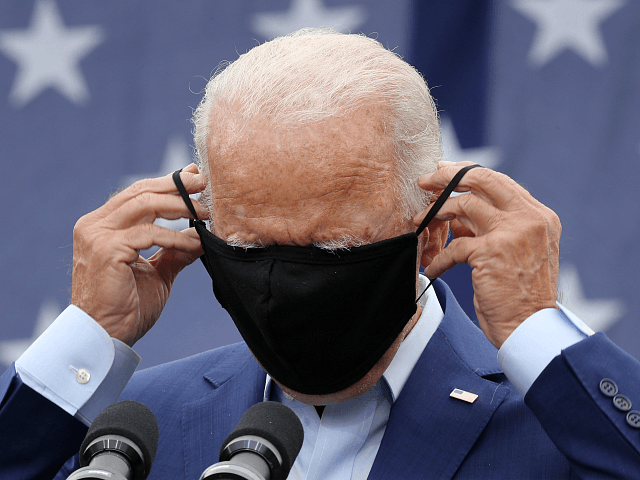The results of the world’s biggest Coronavirus/masks study are in. It doesn’t do much to support the suggestion of zealots like Joe Biden that they should be made compulsory.
According to the DANMASK-19 study, published in the prestigious journal Annals of Internal Medicine, there was no statistically significant difference between the mask-wearing group and non-mask wearing group’s likelihood of becoming infected with COVID, as measured by antibody testing, hospital diagnosis, and PCR testing.
Here is the study’s key finding:
Our results suggest that the recommendation to wear a surgical mask when outside the home among others did not reduce, at conventional levels of statistical significance, the incidence of SARS-CoV-2 infection in mask wearers in a setting where social distancing and other public health measures were in effect, mask recommendations were not among those measures, and community use of masks was uncommon. Yet, the findings were inconclusive and cannot definitively exclude a 46% reduction to a 23% increase in infection of mask wearers in such a setting. It is important to emphasize that this trial did not address the effects of masks as source control or as protection in settings where social distancing and other public health measures are not in effect.
The study, conducted in Denmark in April and May this year, is the largest randomised controlled trial on the efficacy of masks against COVID-19 infection.
A total of 3030 participants were randomly assigned to the recommendation to wear masks, and 2994 were assigned to control; 4862 completed the study. Infection with SARS-CoV-2 occurred in 42 participants recommended masks (1.8%) and 53 control participants (2.1%). The between-group difference was −0.3 percentage point (95% CI, −1.2 to 0.4 percentage point; P = 0.38) (odds ratio, 0.82 [CI, 0.54 to 1.23]; P = 0.33). Multiple imputation accounting for loss to follow-up yielded similar results. Although the difference observed was not statistically significant, the 95% CIs are compatible with a 46% reduction to a 23% increase in infection.
What this means is that the results are inconclusive. Fewer mask-wearers ended up catching Covid than non-mask wearers. But not enough to demonstrate convincingly that masks make any real difference preventing the spread of Covid. Study limitations included reliance on patient-reported data (on mask behaviour and results of home antibody tests), inability to blind study participants to the intervention, and loss of patients to follow up.
This is the same study that was mysteriously declined by the world’s top three medical journals.
One of the study’s co-authors, Thomas Lars Benfield, hinted that this was because the findings were so controversial that the journals didn’t dare publish them.
A lead investigator on the Danish mask study – the ONLY (as far as I know) randomized trial to see if masks protect from #COVID – was asked when it would be published.
His answer: “as soon as a journal is brave enough.”
If you think that means the study shows masks work… pic.twitter.com/tm5PFBa5TL
— Alex Berenson (@AlexBerenson) October 18, 2020
But now, finally, the study has been published and the findings appear to be much blander than Benfield’s comment implied.
This has prompted speculation that in order to get their study published, the authors may have removed their more controversial findings.
In the original protocol for the study, there were a number of other outcomes that they planned to assess.
For example: (original misspelling retained)
- Difference between the two study groups [ Time Frame: 1 month ]
Returned swabs
- Discribtion of the face mask users psycological aspects of wearing face masks [ Time Frame: 1 month ]
Psychological aspects of face mask wearing in the community
- Costs associated with wearing vs not wearing face masks [ Time Frame: 1 month ]
Cost-effectiveness analyses on the use of surgical face masks
These and others might have given a more rounded cost-benefit analysis of masks — taking into account not just their effectiveness (or otherwise) as a barrier to viruses, but also potential adverse consequences.
But if these issues were examined, the conclusions are not present in the published study.

COMMENTS
Please let us know if you're having issues with commenting.